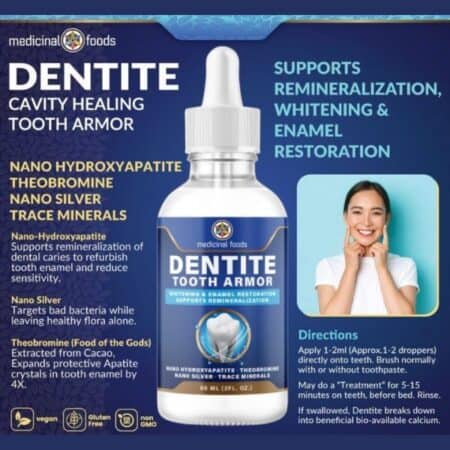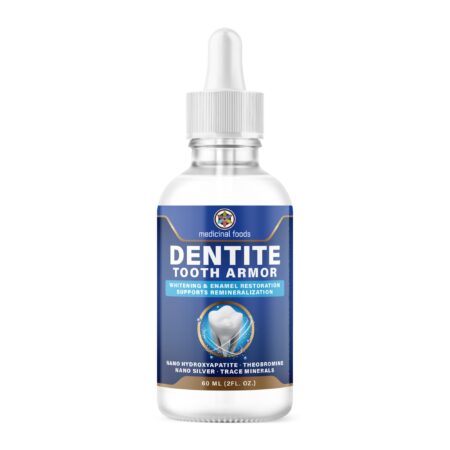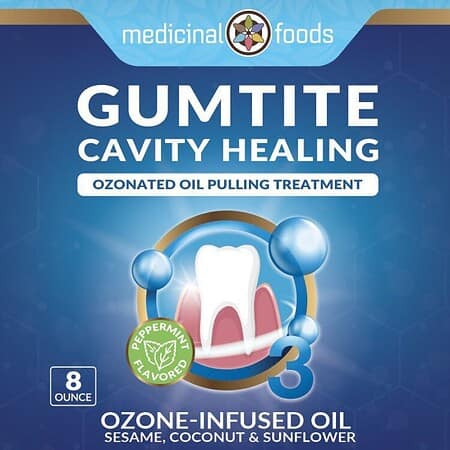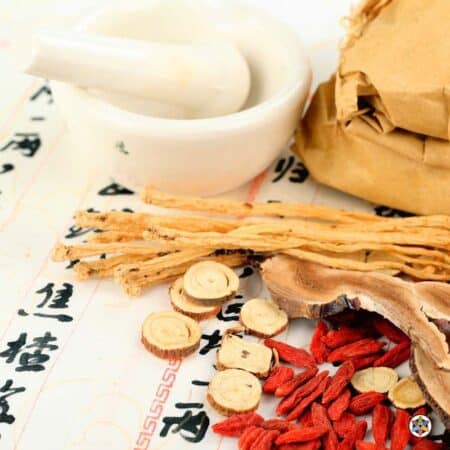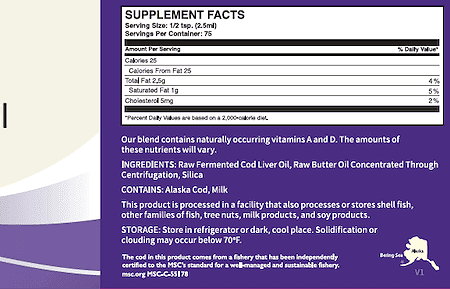Home remedies for cavities exist and work well, did you know that? Yes, you can enhance your dental care and even treat some buccal issues at home with natural medicine.
The treatment to eliminate this uncomfortable and dangerous problem is usually done through a restoration, which is carried out by the dentist and consists of removing it and all infected tissue, and then covering the tooth with a substance that can be composite resin, ceramic or amalgam.
Currently, there are 3 ways to carry out this treatment with anesthesia and a drill, to scrape all the compromised material, with laser or with a papain dental gel called, which manages to soften the caries and eliminate all the injured tissue, simply, quickly and without pain, being an excellent option for those who are afraid or simply do not like to go to the dentist.
However, in cases where the decay is very deep and reaches the pulp of the tooth, it may be necessary to perform a root canal treatment, which is more invasive and requires more sessions at the dentist.
So, in order to avoid going through all this process, you can keep an eye open and inspect your mouth carefully sporadically. If you are able to detect any signs of tooth decay in early stages, bigger is the chance that you can treat it or even revert it with simpler solutions.
In order to understand if everything is alright in your mouth, and therefore to know how to prevent the progression and formation of caries, it is necessary to understand how this problem arises in the teeth.
Caries is a disease caused by the action of some bacteria that can cause partial or total destruction of a tooth. The presence of these bacteria in the mouth is associated with inadequate nutrition and poor oral hygiene.
Dental caries arises well before the deterioration of dental enamel occurs. It happens due to the accumulation of food residues and also due to unfavorable conditions for the health of the mouth.
One of the biggest causes of caries is the consumption of sugary foods and drinks, because the cariogenic bacteria that decompose these foods, produce acids that cause the dissolution of the mineral content of the teeth, and consequently the appearance of lesions called caries.
Cavity home remedy
There are natural medicines that can fight caries or help slow their growth. However, it is important to remember that if the problem has already developed it is necessary to seek professional help.
The medicines suggestions given in this article prevent and help to slow the progression, but they do not cure, and tooth erosion needs to be treated.
There are some foods that present properties that can make miracles for the health of the mouth.Check out the tips below.
-
Oregano oil – It has antiseptic and antimicrobial properties that fight germs and microorganisms. To take advantage of these properties, you can brush your teeth with oregano oil after brushing with toothpaste.
-
Xylitol – Because it is a natural sweetener, it helps keep your mouth and body at healthy pH levels, helping to prevent caries from forming and progressing. Xylitol helps to reduce the formation of plaque, preventing it from sticking to the teeth.
-
Clove oil – It helps to maintain the mineralization of teeth and has been used since ancient times to relieve toothaches. You can use this oil by mixing 1 drop of clove oil with a teaspoon of coconut oil and rubbing it on your teeth after your usual brushing.
-
Hydroxyapatite treatment – can help to reverse and heal minor tooth decay, also can add armor to prevent decay from ever happening in the first place.
-
Neem oil – In India, neem twigs are used as chewing sticks to clean and whiten teeth, fight bad breath, and reduce oral bacteria. In addition to these benefits, neem oil reduces plaque, fights gingivitis and relieves canker sores.
In the past, neem oil was widely used as a remedy for oral infections, cavities and to prevent bleeding and sore gums. To get the benefits of neem oil, mix 1 drop of this oil in 1 teaspoon of coconut oil, rubbing it on your teeth after routine brushing.
-
Green tea – It contains natural fluoride-like compound and consuming it (sugar-free) daily may help eliminate the buildup of bacteria that are harmful to oral health, helping to prevent tooth erosion. You can even use green tea as a mouthwash and to gargle, after daily brushing.
-
Licorice root – Chewing licorice root prevents and may help delay the onset of tooth decay. Licorice root is a natural antimicrobial and antibacterial that prevents the formation and growth of cavities and gum disease. You can find licorice root at health food stores.
-
Salt water – Using it fights bacteria and serves as a mouthwash after brushing your teeth. You can do this once a day.
-
Sodium bicarbonate – In addition to sodium bicarbonate having a neutral Ph, it has a sanitizing action, factors that favor the fight against bacteria and the formation of caries. You can mix 1 teaspoon of bicarbonate with 1/2 teaspoon of water and brush your teeth or rinse your mouth with a solution of 3 teaspoons of bicarbonate in 1 cup (tea) of water.
Attention: As sodium bicarbonate has a very cleaning and abrasive action, it should not be used excessively, as it can cause damage to dental enamel.
- Sesame oil – Sesame oil mouthwash has the power to clean teeth, neutralize bacteria and benefit gum health. This is an ancient practice, used by Indians, which consists of rinsing your mouth with an oil, such as sesame, olive oil or coconut, for about 20 minutes and then spitting it out.
The purpose of this natural practice called oil pulling is to remove toxins from the mouth. To attest if this practice actually fulfills this objective, a clinical trial was carried out in a group of people using the mouthwash with this oil.
As a result, the use of sesame oil was found to reduce plaque, gingivitis and the number of bacteria in the mouth as effectively as chlorhexidine mouthwash. To use this product for such purposes, rinse your mouth with 1 tablespoon of sesame oil for 20 minutes and then spit it out.
Cavity cure home remedy
In order to get rid of this problem, you should give your teeth a boost of elements that will help it to recover while you eliminate the conditions for bacteria to thrive.
You will need to change your routine during the process and track the results. You can start by implementing or increasing doses of the following elements:
-
Consume more vitamin D – It is beneficial for bone health as it speeds up calcium metabolism and induces the production of cathelicidin, an antimicrobial peptide that attacks decay-causing bacteria. It is fat-soluble and is not easily obtained from the diet, even though fatty fish (such as salmon, tuna and mackerel) are a great source of it.
Get plenty of sun (to metabolize the vitamin, you shouldn’t put on sunscreen, so limit your sun exposure time to half an hour). During the winter, when the sun may be weaker or hidden behind many clouds, take vitamin supplements if necessary;
-
Consume more foods that contain vitamin K2 – This natural component similar to vitamin K is very important in the development of facial bones, including teeth. The modern diet is deficient in vitamin K, so make a conscious effort to consume it more often, which can contribute to the health of your teeth.
Find it in fermented and animal foods like: animal entrails (mainly crab and lobster); liver oil; bone marrow.
- Try fermented cod liver oil for fatty vitamins – Several researches suggest that teeth erosion occurs, in part, because of a lack of such vitamins (as vitamins A, D, and K) in the modern diet. Fermenting cod oil, rather than distilling it, causes it to retain the whole vitamins for tooth remineralization.
If you can’t find—or don’t want to try—cod liver oil, add vitamin A to your diet by eating large amounts of chicken liver, goat cheese, or whole milk. Just know that you will need 50 g of liver, 480 g of cheese and 7 L of milk to replace 1 teaspoon of fermented cod liver oil.
You can also add more vitamin D to your diet by consuming large amounts of eggs, salmon and whole milk. To achieve the vitamin content of 1 teaspoon of fermented cod liver oil, you will need to consume 500 g of salmon, 60 eggs and 80 L of whole milk.
- Use a mineralizing toothpaste – Look for fluoride-free toothpastes that help remineralizing and strengthening your teeth. These products can be more expensive.
If desired, make your own toothpaste. Mix 4 tablespoons of coconut oil, 2 tablespoons of baking soda, 1 tablespoon of xylitol (or 1/8 teaspoon of stevia), 20 drops of peppermint oil and 20 drops of trace elements or calcium or magnesium powder.
Now you know that home remedies for cavities are not only an option but they are also easy to implement in your routine. Now you can have a better oral hygiene and prevent buccal problems.



